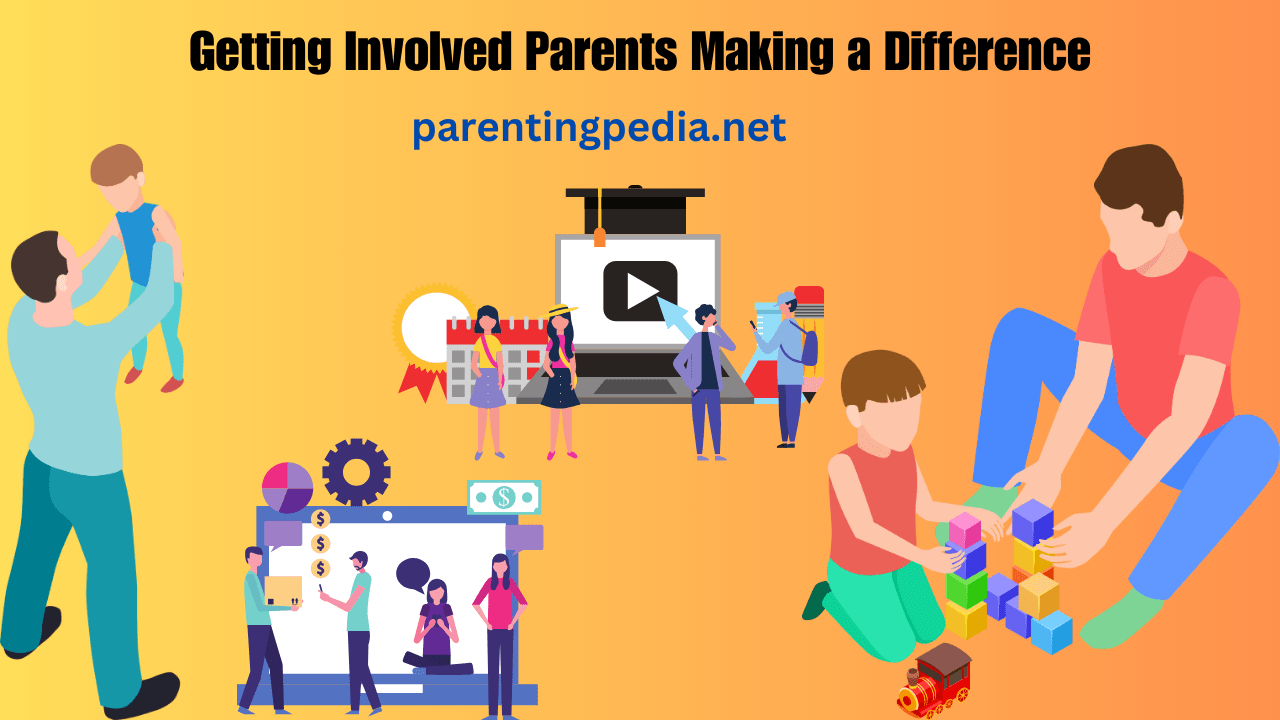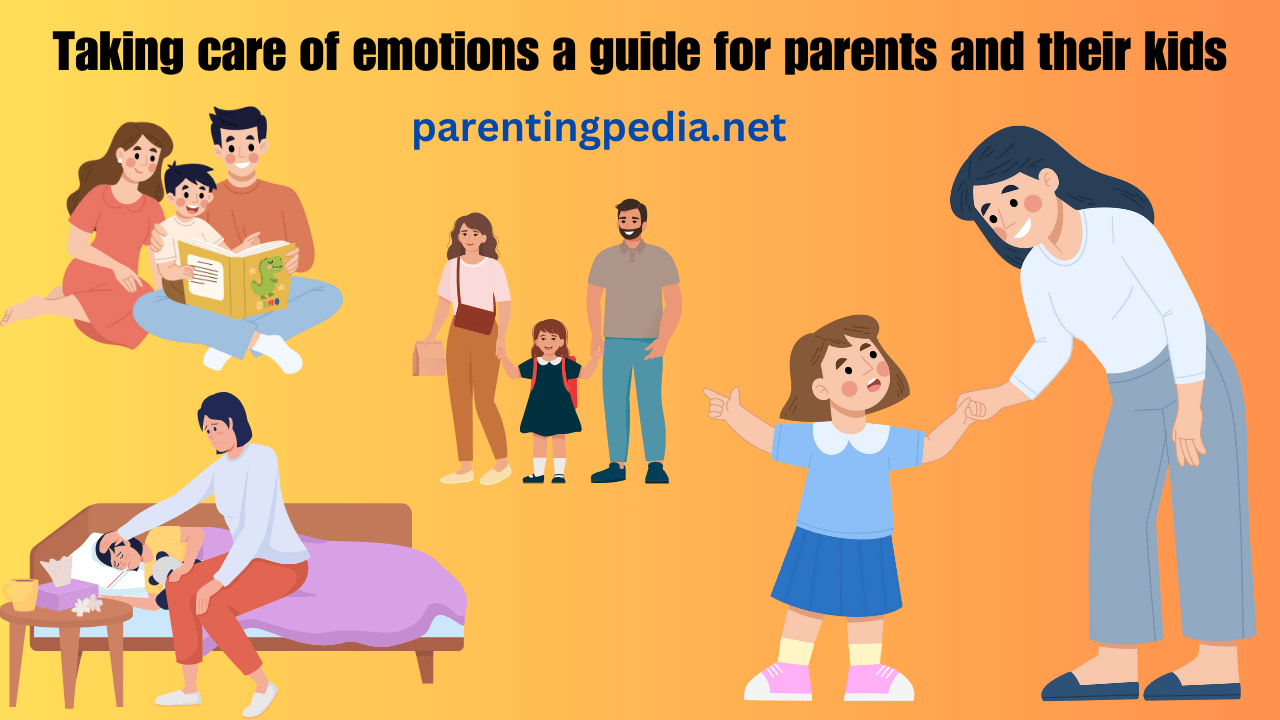In a world where the importance of parental involvement in education is widely recognized, the role of parents in their children’s academic journey cannot be overstated. When parents actively engage in their child’s education, it often leads to improved student success, better academic achievement, and a positive learning environment. In this blog post, we will explore the various aspects of parental involvement, its significance, and ways parents can get involved to make a difference in their child’s education. Let’s dive right in!
The Significance of Parental Involvement
Parental Involvement: A Key to Student Success
One of the cornerstones of student success is parental involvement. Research has consistently shown that students with involved parents tend to perform better academically. The Department of Education and various studies have highlighted the positive correlation between parental engagement and student achievement. When parents actively participate in their children’s education, it creates a strong support system that enhances academic success.
Department of Education – Parental Involvement
The Impact on Academic Achievement
The impact of parental involvement on academic achievement cannot be understated. Parents who take an active role in their child’s education help ensure that their children remain focused and motivated to excel in their studies. It’s not just about helping with homework; it’s about fostering a love for learning that lasts a lifetime.
Learn more about Academic Achievement
Ways for Parents to Get Involved
Getting Started: Simple Ways for Parents to Engage
Now that we understand the importance of parental involvement, let’s explore practical ways parents can get involved in their child’s education.
Volunteering at School Events
One of the easiest ways for parents to get involved is by volunteering at school events. Whether it’s helping out at a bake sale, chaperoning a field trip, or assisting with extracurricular activities, your presence and support make a significant difference.
Learn about upcoming school events
Attend Parent-Teacher Meetings
Attending parent-teacher meetings is crucial for staying informed about your child’s progress. These meetings provide a platform for open communication between parents and teachers, enabling you to address any concerns and celebrate achievements together.
Find out when the next parent-teacher meeting is
Create a Positive Learning Environment at Home
Learning at home is equally important. Parents can establish a conducive learning environment by setting aside a quiet space for studying, providing necessary resources, and encouraging a daily study routine.
Explore tips for creating a positive learning environment
Active Engagement in Homework
While helping with homework, parents can actively engage with their children, asking questions and providing guidance. This not only aids in completing assignments but also promotes a deeper understanding of the subject matter.
Discover effective homework strategies
Join the School Community
Becoming an active member of the school community is another way to get involved. You can participate in parent-teacher associations, attend school board meetings, or join committees dedicated to school improvement.
Learn about school community involvement opportunities
Encourage a Love for Reading
Reading is fundamental to a child’s development. Encouraging your child to read regularly, discussing books, and visiting the library together can foster a love for reading and enhance literacy skills.
Explore the benefits of reading with your child
Parental Involvement in Education: The Foundation for Success
Parent Involvement in Education
The active engagement of parents in their child’s education is the foundation upon which student success is built. It’s not just a matter of being present; it’s about actively participating in various aspects of their educational journey.
Learn more about Parent Involvement
Family Involvement in Education
When families are involved in education, it creates a sense of unity and shared responsibility for a child’s learning. It’s a collaborative effort between parents, teachers, and the community to provide the best educational experience.
Discover the benefits of family involvement
The Impact of Parental Support and Involvement
Positive Outcomes: Academic Success and Beyond
Parental support and involvement extend beyond the classroom. It encompasses social and emotional skills, which are essential for a child’s overall development. Students with involved parents tend to have better communication skills, increased self-confidence, and improved problem-solving abilities.
Explore the holistic impact of parental involvement
Involvement Leads to Greater Student Achievement
Studies have consistently shown that students with actively involved parents are more likely to excel in school. Their grades are higher, and they are more likely to graduate from high school and pursue higher education.
Read more about student achievement and parental involvement
Pros of Parental Involvement in Education
- Improved Academic Performance: When parents actively engage in their child’s education, it often leads to better academic results. Students with involved parents tend to earn higher grades, perform well on tests, and are more likely to graduate from high school.
- Positive Learning Environment: Parental involvement creates a positive and supportive learning environment at home. Children are more motivated to learn when they know their parents are interested and invested in their education.
- Enhanced Communication: Regular interactions between parents and teachers foster open lines of communication. This allows for the early identification and resolution of any issues or concerns that may arise in a child’s academic journey.
- Increased Confidence: Children whose parents are actively involved tend to have higher self-esteem and confidence. They feel supported and encouraged, which contributes to their overall well-being.
- Better Social and Emotional Skills: Parental involvement goes beyond academics. It helps children develop social and emotional skills, such as empathy, communication, and problem-solving, which are essential for success in school and life.
- Greater Graduation Rates: Students with involved parents are more likely to graduate from high school and pursue higher education, setting the stage for future success.
- Civic Engagement: Parental involvement in schools often extends to community engagement. This not only benefits individual students but also strengthens the overall school and community.
- Increased Teacher Morale: Teachers appreciate parental support and involvement. Knowing that parents are committed to their child’s education can boost teacher morale and job satisfaction.
Cons of Parental Involvement in Education
- Time Constraints: Many parents have busy work schedules and other commitments, making it challenging to find time for active involvement in their child’s education.
- Potential for Over-involvement: While involvement is essential, some parents may become overly involved to the point of micromanaging their child’s academic life, which can lead to stress and anxiety.
- Unequal Access: Not all parents have equal access to resources, time, or education levels. This can create disparities in the level of involvement among students, potentially affecting their educational outcomes.
- Burnout: Overcommitted parents may experience burnout, affecting their own well-being and their ability to effectively support their child’s education.
- Privacy Concerns: In the age of technology, some parents may overstep boundaries by monitoring their child’s online activities excessively, raising concerns about privacy and independence.
- Teacher-Parent Conflict: Occasionally, conflicts may arise between parents and teachers, particularly when they have differing opinions about a child’s education. These conflicts can be disruptive to the learning environment.
- Pressure on Students: High parental expectations and pressure to perform can sometimes lead to stress and anxiety in students, rather than motivation.
- Cultural and Language Barriers: Parents from diverse cultural backgrounds or non-native English speakers may face challenges in effectively communicating with teachers and understanding the education system.
Conclusion
In conclusion, parental involvement in education is a powerful catalyst for student success. When parents take an active role in their child’s academic journey, it creates a positive learning environment, fosters a love for learning, and leads to improved academic achievement. Whether it’s volunteering at school events, attending parent-teacher meetings, or creating a supportive home environment, every effort counts.
As parents, you have the opportunity to make a profound difference in your child’s education. Your involvement is not just a key; it’s the master key that unlocks the door to a brighter future for your children. So, get involved, stay involved, and watch your child thrive academically and beyond.
Remember, it’s not about being a perfect parent; it’s about being a present and engaged one. Your child’s success is a journey, and you are their most significant guide.
Start your journey to parental involvement today
By actively participating in your child’s education, you are investing in their future, and the dividends are bound to be substantial. So, let’s make a difference, one involved parent at a time, and pave the way for a generation of successful students.
Join the movement for involved parents
In the end, it’s not just about what you do; it’s about the love, support, and dedication you bring to your child’s educational journey. Your involvement is the cornerstone of their success, and together, we can empower the next generation to reach new heights of academic achievement.
Remember, the greatest reward of parenting lies in watching
your children soar with love and confidence.
Till then keep smiling and be happy 😊
Worth Reading 👇
- Finding Balance Becoming a Screen Smart Family
- Best of the web when you’re teen asks for non-alcoholic beer and more
- how to be a best and fairest sporting parent from nathan burke
- Is your child being bullied, how parents can help?
- Choosing the Best Musical Instrument for Children to Learn
- When Life Sucks: A Conversation with Psychiatrist and Comedian Dr. Jo Prendergast
- Getting kids to talk about their feelings
- The case for banning corporal punishment of kids
- Why meditation should be taught in schools


